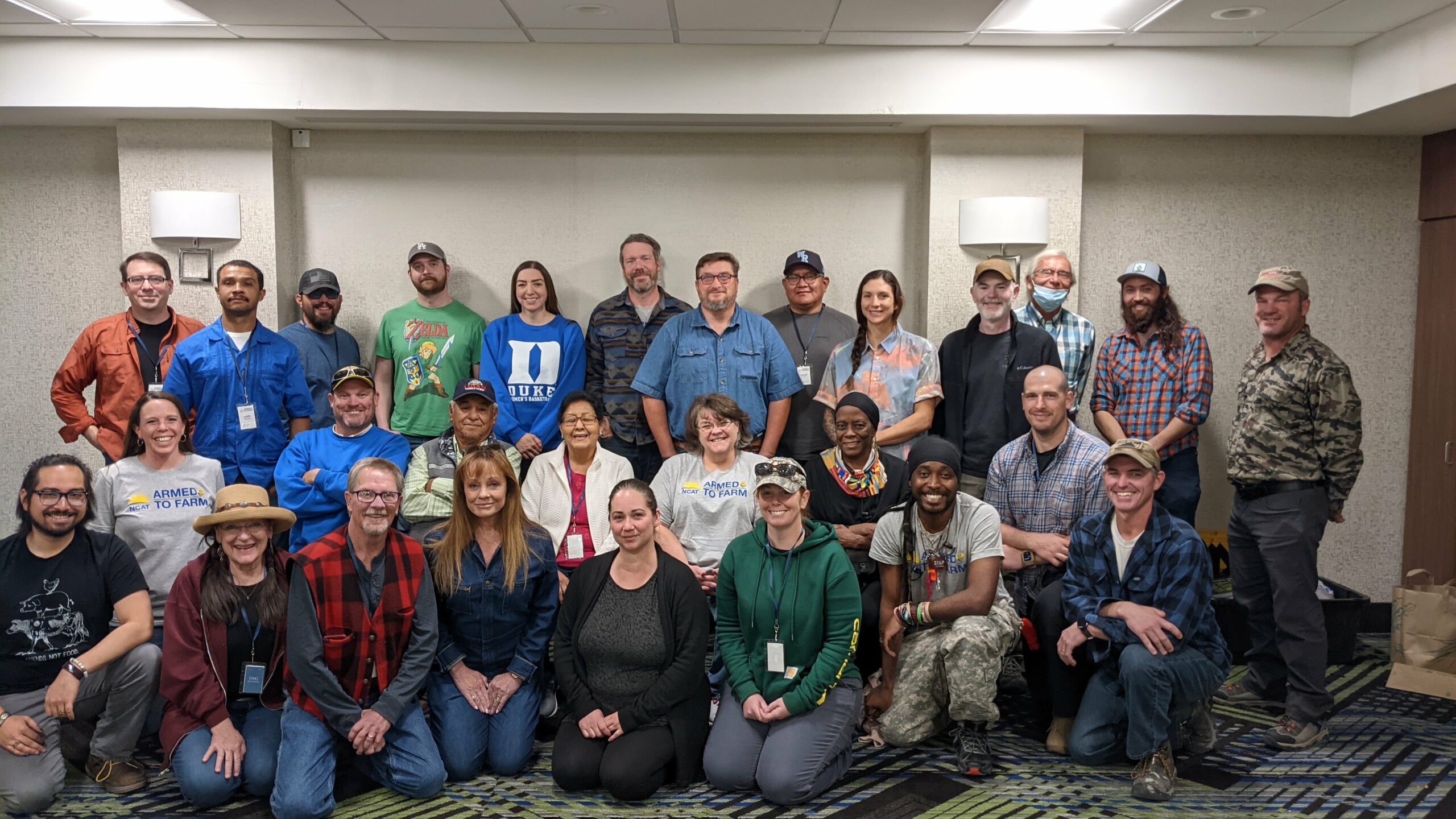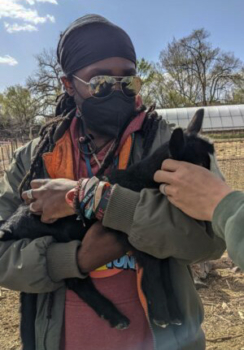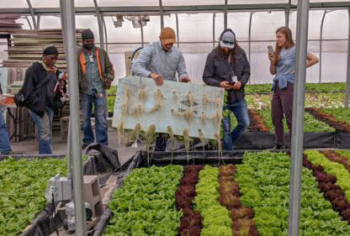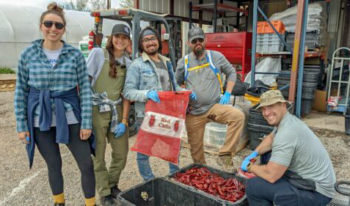Armed to Farm in Albuquerque
By Margo Hale, ATTRA Program Manager and Armed to Farm Director

New Mexico Armed to Farm participants. Photo: NCAT
After two years of delays due to COVID-19, NCAT finally hosted an Armed to Farm training in the Southwest. At the end of March, we hosted 27 veterans and their spouses or family farm partners in Albuquerque, New Mexico, for a week of training. As the Director of Armed to Farm, I have had the joy of participating in the majority of our 27 in-person Armed to Farm trainings. Each time, it is a delight to meet farmer veterans who are eager to expand their farm and ranch operations and connect them to the many resources and networks that are available to support them. Attendees benefitted from a host of impactful speakers. We started the week learning about USDA agencies and many of their programs. Speakers from the Farm Service Agency, Natural Resources Conservation Service, and Rural Development shared about the variety of loans, assistance programs, conservation programs, cost-share programs, and grants available for farmers and ranchers. Most participants were not familiar with these agencies and resources, so I was glad we could make those connections through Armed to Farm, particularly since military veterans and beginning farmers may receive preference in the application process for many USDA programs. Reach out to your local USDA offices to learn more about their programs or contact ATTRA and we can help connect you to programs that would be a fit for your farm. NCAT partnered with Holistic Management International for the New Mexico Armed to Farm. Dr. Ann Adams, HMI Education Director, spoke to the group about whole-farm planning and setting a holistic farm goal. Participants also learned about Small Business Administration support for veteran-owned businesses and funding programs from Farm Credit of New Mexico. Rusty Rumley from the National Ag Law Center discussed business structures and liabilities for farms. The group also learned about assessing risk on the farm. In addition, NCAT Sustainable Agriculture Specialist Justin Duncan taught an introduction to beekeeping, and I gave presentations on recordkeeping and farm branding. Focus on Soil Health Soil health was a big emphasis during this Armed to Farm. These farmer veterans are working in arid conditions where access to water is a major limitation and productive soils are hard to find. Soil health educator Rudy Garcia gave an inspiring presentation that included examples of New Mexico farmers and ranchers who improved their production and built healthier soils through implementing soil health practices. I spoke about NCAT’s Soil for Water program, which connects producers around the country who are implementing practices to improve soil health and increase the water holding capacity of their land. Each farm we visited shared how they are working to build and improve the soil on their operations.

Photo: NCAT
Farm Tour Highlights Our first farm visit took us to Trilogy Beef Community, where the Encinas family shared about their beef operation. We learned about their breed selection, feeding, grazing management, breeding, and marketing. They also shared that changing their operation to marketing beef directly to customers has improved their profitability. It was inspiring to see the whole family involved in their operation. At Polk’s Folly Farm, we saw another family operation that is building soil on their farm with compost made from food waste. They are conducting soil health research on their farm and integrating innovative practices, like Johnson-Su bioreactors, into their operation. We learned about their pork operation and saw how they are supporting other New Mexico farmers through their farm grocery store.

Chispas Farm. Photo: NCAT
At Chispas Farm, we learned how they have built soil health and transitioned their diversified vegetable operation to no-till. We saw their NRCS-funded high tunnels and produce washing, packing, and storage set-up. Chispas Farm has become an integral part of their community, which has helped their operation grow. We also got to snuggle baby goats, which is always a highlight! At Silver Leaf Farms, we heard the inspiring story of how their operation has expanded from growing in a backyard to a business that supports many full-time employees. We learned how their hydroponics operation fits in with their field grown crops. We helped process some chiles and taste tested some of their value-added products—hot sauce!

Silver Leaf Farms. Photo: NCAT
It was an educational week for me, seeing farms operating in completely different conditions than what I am used to in Arkansas. We shared vast amounts of information and resources with the Armed to Farm participants. They left the week with their brains full of ideas to implement on their own farms and the connection to a supportive network of educators, farmers, and other veterans. I am excited to watch their operations flourish.
This blog is produced by the National Center for Appropriate Technology through the ATTRA Sustainable Agriculture program, under a cooperative agreement with USDA Rural Development. ATTRA.NCAT.ORG.


